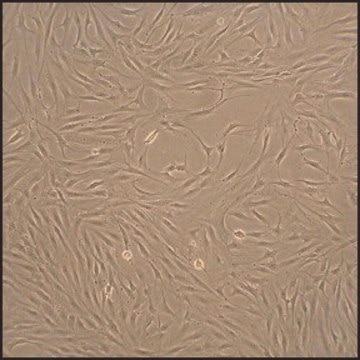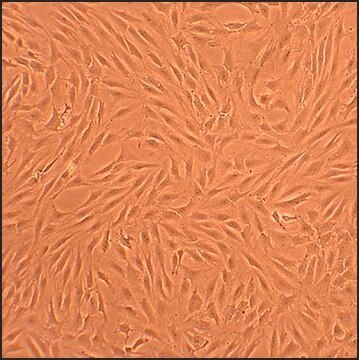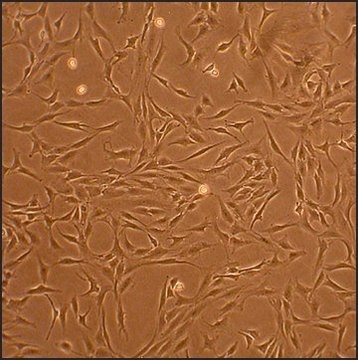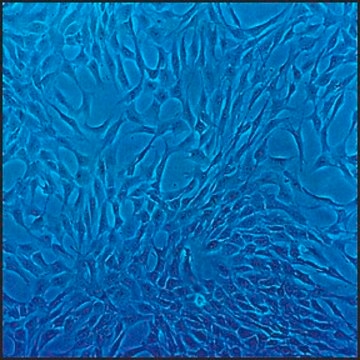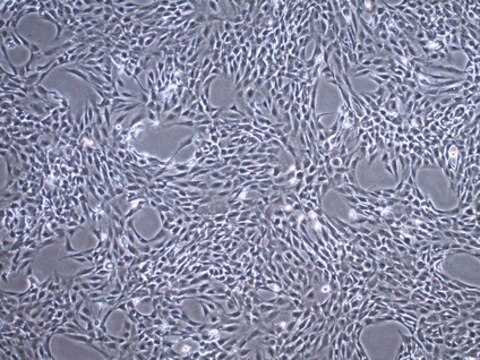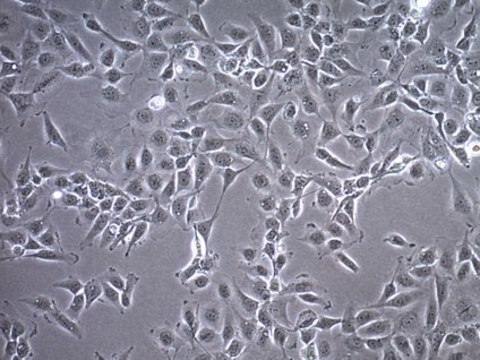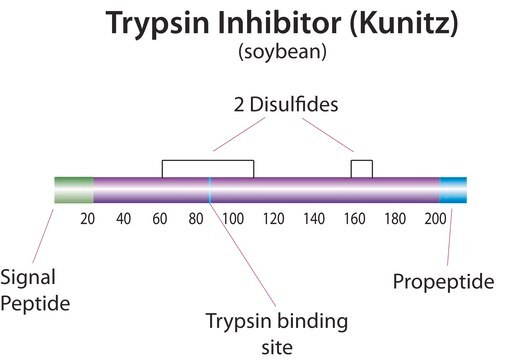408OA-05A
Human Fibroblast-Like Synoviocytes-Osteoarthritis: HFLS-OA, adult
Synonym(e):
Human fibroblast culture
About This Item
Empfohlene Produkte
Biologische Quelle
human synovial tissues (osteoarthritic)
Qualitätsniveau
Verpackung
pkg of 500,000 cells
Hersteller/Markenname
Cell Applications, Inc
Wachstumsmodus
Adherent
Karyotyp
2n = 46
Morphologie
Fibroblast-like
Methode(n)
cell culture | mammalian: suitable
Relevante Krankheit(en)
arthritis; coagulation disorders
Versandbedingung
dry ice
Lagertemp.
−196°C
Verwandte Kategorien
Allgemeine Beschreibung
HFLS-RA provide an excellent cellular model for studying synoviocyte physiology in relation to development and treatment of rheumatoid arthritis.
HFLS-RA have been used in numerous research studies to:
- Study signaling pathways implicated in the development of joint inflammation and rheumatoid arthritis (Abe, 2006; Akasaka, 2005; Bai, 2012; Fan, 2013; Furuhashi, 2008; Hashizume, 2008; Matsuyama, 2010; Tsuji, 1999; Yamaguch, 2012a,b; Yano, 2001)
- Evaluate possible contribution of EBV to nonresolving rheumatoid arthritis inflammation through inducing IL-6 production by synoviocytes (Chiu, 2013)
- Evaluate the anti-inflammatory and antirheumatic activity of various compounds, such as celastrol (Venkatesha, 2011; Xu, 2013), triptolide (Kong, 2013; Lin, 2013), arsenic trioxide (Mei, 2011), Wen Luo Yin (Liu, 2013), bucillamine (Tsuji, 2007), therapeutic lyposomes (Harigai, 2007; Ichihara, 2011; Matsumoto, 2013; Negishi, 2011), anti-IL-6R and anti-CD319 antibodies (Suzuki, 2010; Woo, 2013), as well as inhibitors of NF-κB (Baima, 2010; Keith, 2005), methionine aminopeptidase-2 (Bernier, 2004), Tpl2 (Hall, 2007), aryl hydrocarbon receptor (Lahoti, 2013) and p38 MAP kinase (Wada, 2005); and additionally demonstrate the beneficial anti-inflammatory effects of low level light therapy (Yamaura, 2009)
- Investigate the causes of metalloproteinases induction in patients with Lyme disease-associated arthritis (Lin, 2001)
- Develop adenovirus-based siRNA delivery system (Arts, 2003)
Additionally, together with normal HFLS, HFLS-RA were used to:
- Identify causing agents (such as uric acid crystals or platelet microparticles) and study the immunopathological mechanisms and signal transduction pathways leading to joint inflammation in rheumatoid arthritis (Chen, 2011a; Hsu, 2012; Mathieu, 2008; Tsuji, 2012), and to demonstrate the role of estrogen signaling in increasing inflammation (Galal, 2008)
- Investigate anti-inflammatory properties of herbal compound Sinomenine suggested for rheumatoid arthritis treatment (Chen, 2011b)
- Study the effects of extracellular matrix composition on cell attachment and migration relevant to T-cell function in inflamed tissues (Evanko, 2012)
In parallel with HFLS isolated from joints of patients with osteoarthritis HFLS-RA were used in a study demonstrating the involvement of capsid proteins of parvorvirus B19 in activating synoviocyte migration and induction of the inflammatory response leading to acute symmetrical polyarthropathy (Lu, 2006).
Finally, all three types of HFLS (normal, RA and OA) were used to investigate the role of human endogenous retroviruses (HERVs) in development of rheumatoid arthritis, and suggest that activated expression of different forms of HERV contribute to development of rheumatoid arthritis symptoms by different mechanisms (Freimanis, 2010).
Ursprung der Zelllinie
Anwendung
Komponenten
Angaben zur Herstellung
- 2nd passage, >500,000 cells in Basal Medium containing 10% FBS & 10% DMSO
- Can be cultured at least 5 doublings
Subkultur-Routine
Haftungsausschluss
WGK
WGK 3
Flammpunkt (°F)
Not applicable
Flammpunkt (°C)
Not applicable
Analysenzertifikate (COA)
Suchen Sie nach Analysenzertifikate (COA), indem Sie die Lot-/Chargennummer des Produkts eingeben. Lot- und Chargennummern sind auf dem Produktetikett hinter den Wörtern ‘Lot’ oder ‘Batch’ (Lot oder Charge) zu finden.
Besitzen Sie dieses Produkt bereits?
In der Dokumentenbibliothek finden Sie die Dokumentation zu den Produkten, die Sie kürzlich erworben haben.
Kunden haben sich ebenfalls angesehen
Unser Team von Wissenschaftlern verfügt über Erfahrung in allen Forschungsbereichen einschließlich Life Science, Materialwissenschaften, chemischer Synthese, Chromatographie, Analytik und vielen mehr..
Setzen Sie sich mit dem technischen Dienst in Verbindung.